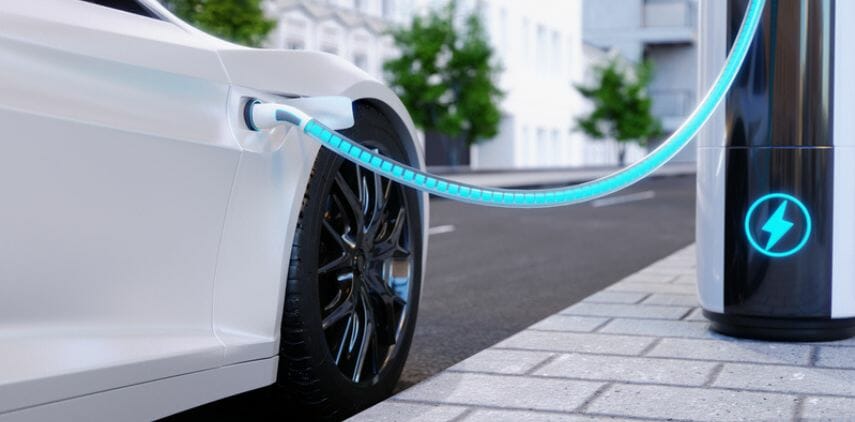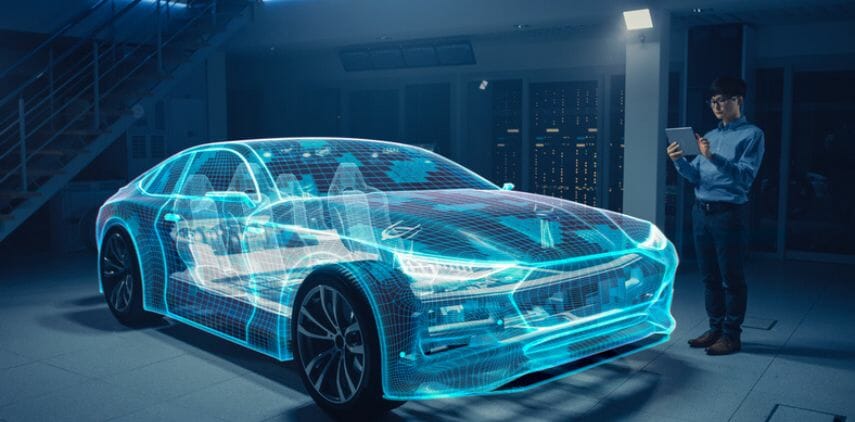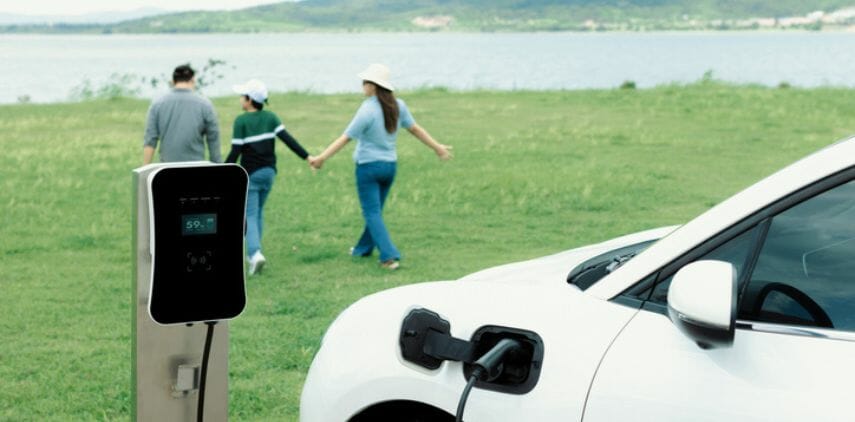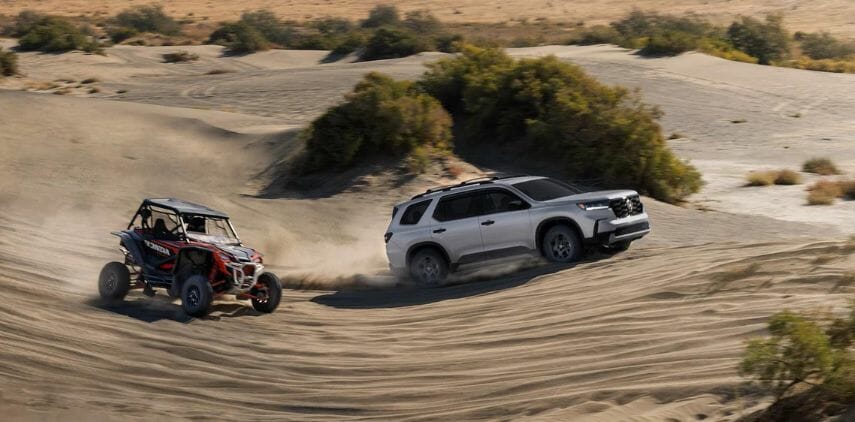Overview
SUVs are one of the hottest properties in the market right now. Every auto manufacturer is releasing its lineup of SUVs to be a part of this rapidly expanding market. SUVs offer a great deal of practicality and performance, and it is available at almost all price points by now. But like any other car, they require regular maintenance to ensure their reliability.
There are a few basic things you need to learn to keep your SUV in the best possible condition. We have gathered a few tips that can help you easily get a hang of these tasks. Most of these tips are not specific to SUVs alone. These are basic maintenance tasks that will keep your car running healthy while looking as good as new.
Table of Contents
Seepage/ Leakage in Suv
If water is getting into the cabin when it rains, the most common cause will be either rusted body panels that have developed holes, or corroded gaskets or sealants in the door, windshield, sunroof, etc. If there is rust in the panels, your best bet is to take your car to an auto repair shop to get it mended as soon as possible. This will ensure that the rust does not spread. If the gaskets are leaking, find the spot and apply a quick dry sealant made for the purpose. If that does not fix it, you will have to replace the gasket.
Water can also get in the cabin if the tubes transporting condensed water from the AC system get clogged up. You might find puddles of water on the floor if it happens. It is not a major problem, but you will have to get it fixed by a mechanic. Leaving the water inside for a long time can corrode the metal and damage electrical components.
If fluids are leaking from your SUV, you can diagnose it based on the position and color of the fluid. If you find dark brown oil under the engine bay, it is likely to be engine oil. If the oil is red or brownish, it is transmission fluid, and if the fluid has a yellow or blue tint with a sweet smell, it is likely to be coolant. It is most commonly caused by cracked oil pans or radiators, or corroded gaskets and tubes. You should not drive with low fluid levels and should get it repaired immediately.
If you find clear to light brown oil leaks near the wheels or the passenger side of the car, it could be brake fluid. You should never drive if the car is leaking brake fluid. If you find odorless and colorless water under your car, it is most likely to be condensation from the AC system, and unless there is a lot of water, it should not be a problem. However, be sure to mention that to your mechanic during the next visit.
Suv exhaust system
The exhaust system undergoes a lot of pressure, vibration, and high temperature every time you drive the car. It is designed to be subjected to such harsh conditions, but certain factors can adversely affect its longevity. If the vehicle is always used for very short rides, and the exhaust never gets up to temperature, or if it is constantly subjected to saltwater, the exhaust pipe is more prone to premature corrosion and rusting.
Exhaust pipe damage can also be caused by careless driving over potholes, rocks, and other debris. The most common symptoms of a leaking exhaust are:
- Decreased acceleration
- Noisy engine
- Decreased fuel efficiency
- Gas smell
If these issues are not addressed immediately, it can cause bigger problems.
Driving Carefully
Driving an SUV might be a bit tricky, especially for novice drivers. Their large size offers a lot of practicality, but it hinders its agility. So you have to be extra careful in heavy traffic and tight spaces. Always pay keen attention to the road and always be aware of your surroundings. SUVs tend to have huge blind spots, so you should always be mindful of that.
Interior Care
Interior is the most important part of the car as it will be where you spend most of your time. Start with a vacuum and clean every nook and cranny. Now give the seats a good scrub. Use brushes with long bristles to clean the AC vents. Finally, use a polish to achieve the shine and to protect it from sun rays.
Tire Pressure
It is important to maintain the correct pressure in your tires for several reasons. It affects the grip and handling of the car, and improper pressure can cause accidents. Underinflated tires will drastically reduce your fuel efficiency. It can cause premature wear in the tire as well as suspension components. You can find the correct pressure for your car on the driver-side door pillar or inside the tank flap.
Filter Changes
There are four main filters in your car; Air filter, Oil filter, Fuel filter, and Cabin filter. The air filter cleans the air that goes into the engine. A dirty or clogged air filter can result in the engine choking or burning impurities that harm its longevity. Failing to replace the oil and fuel filters can result in metal shavings and impurities getting inside the engine. A cabin filter cleans the air coming inside the cabin, and not replacing it can overload the AC. Therefore it is advised to check the condition of the filters regularly and replace them if need be.
Fluid Level
To keep your vehicle smooth-running, here are 4 types of fluid levels you must keep in check.
Engine Oil
Check your engine oil during every scheduled maintenance to ensure that it is healthy. You should refer to the owner’s manual to know the interval between oil changes, as it can significantly vary depending on the manufacturer. Never overfill as the oil can get into the crankcase forming bubbles that harm the oil pump. Synthetic oil is the best choice for most people but always stick to the recommended viscosity rating.
Brake Fluid
Keep an eye on the brake fluid level and fill it up as necessary. If the brake fluid has turned brown, it is time to replace it. Always use the fluid with recommended DOT rating. Replacing brake fluid is not as easy as the other oils, so always follow the correct procedure or hire a professional.
Transmission Fluid
Change the transmission fluid according to the interval recommended in the owner’s manual. If you tow a lot, consider investing in a transmission and engine oil cooler.
Differential Fluid
Differential fluids do not get as much attention as other fluids, and it is often overlooked. It requires to be changed only after 30,000 to 50,000 miles depending on the use case.
Brake System
You can increase the lifespan of your brake pads if you just follow some simple steps.
- Leave a reasonable amount of space in the front
- Do not use the left foot for braking
- Use engine braking to slow down the car instead of brakes
- Do not overload the car, and remove any unnecessary weight
- Clean the brake rotors occasionally
You should inspect your brake pads if you hear squealing or grinding, or if the brake pedal feels spongy. It might be caused by worn-out brake pads. Also, replace the brake fluid at the recommended intervals.
Security / Cameras
Follow these steps to protect your car from being stolen.
- If your car has a keyless entry system, make sure to keep the keyfob as far away from the car as possible or use a faraday pouch if you can.
- Park the car in a secure area, ideally with some surveillance. You can also equip dash cams that record when parked.
- If you want to go the extra mile, use a steering wheel lock or a wheel clamp.
Clean the Battery
If the battery terminals have corroded, you can clean them with baking soda. First, remove the negative terminal and then the positive one. Mix some baking soda with hot water and use a brush to rub this on the terminal. Use a dry cloth to wipe off the impurities and reconnect the battery.
Keep Up Mileage
To maintain good fuel efficiency:
- Obey the speed limits. Keep a light foot and accelerate smoothly.
- Use the correct gear or shift a bit early.
- Use Auto Start-Stop if you have it, or else kill the engine if idling for a long time.
- Remove unnecessary weight and maintain correct tire pressure.
Refer to the Official User Manual
Read through the user manual for learning everything from the interval between oil changes to the correct RPM to shift the gear.
Choose A Reputed Auto Repair Shop
Small mistakes made during repairs can end up costing you a lot. Ask around or check online reviews to ensure the quality of their work before you trust them with your vehicle.
Regular Servicing
Ensure that your SUV receives regular maintenance to increase its longevity. It increases its reliability and makes it much safer. Lack of proper maintenance can negatively affect fuel efficiency and ride quality.
SUV Insurance
It is essential to buy insurance that has wide coverage. The price depends on a lot of factors, but you can find the best one through some research online.
Conclusion
Follow these tips to ensure that your SUV remains reliable in the long term. Not only do you get the peace of mind of having a reliable car, when you ultimately sell the car, you will also be able to obtain a higher price as well.
As SUVs are more spacious than other classes and have significant off-road and towing capabilities, they are a good choice for camping. Kia Soul is one of the best SUVs you can find for this purpose.
[/dipl_faq_page_schema_item][dipl_faq_page_schema_item faq_question=”2. Is it more difficult to drive an SUV?” _builder_version=”4.12.0″ _module_preset=”default” question_heading_level=”h3″ answer_text_text_color=”#000000″ custom_margin=”0px||0px||false|false” custom_padding=”0px||10px||false|false” global_colors_info=”{}”]
Contrary to popular belief, driving an SUV is not more difficult, but it’s a different experience altogether. Thanks to the high position of the driver’s seat, you enjoy better visibility of the road ahead. If you’re driving on bumpy terrain, SUVs are much more convenient, thanks to their superior suspension, powerful engine, and high torque.
[/dipl_faq_page_schema_item][dipl_faq_page_schema_item faq_question=”3. Which SUV is best for long-distance driving?” _builder_version=”4.12.0″ _module_preset=”default” question_heading_level=”h3″ answer_text_text_color=”#000000″ custom_margin=”0px||0px||false|false” custom_padding=”0px||10px||false|false” global_colors_info=”{}”]
Honda CR-V is the best SUV for long-distance driving.
[/dipl_faq_page_schema_item][/dipl_faq_page_schema]






